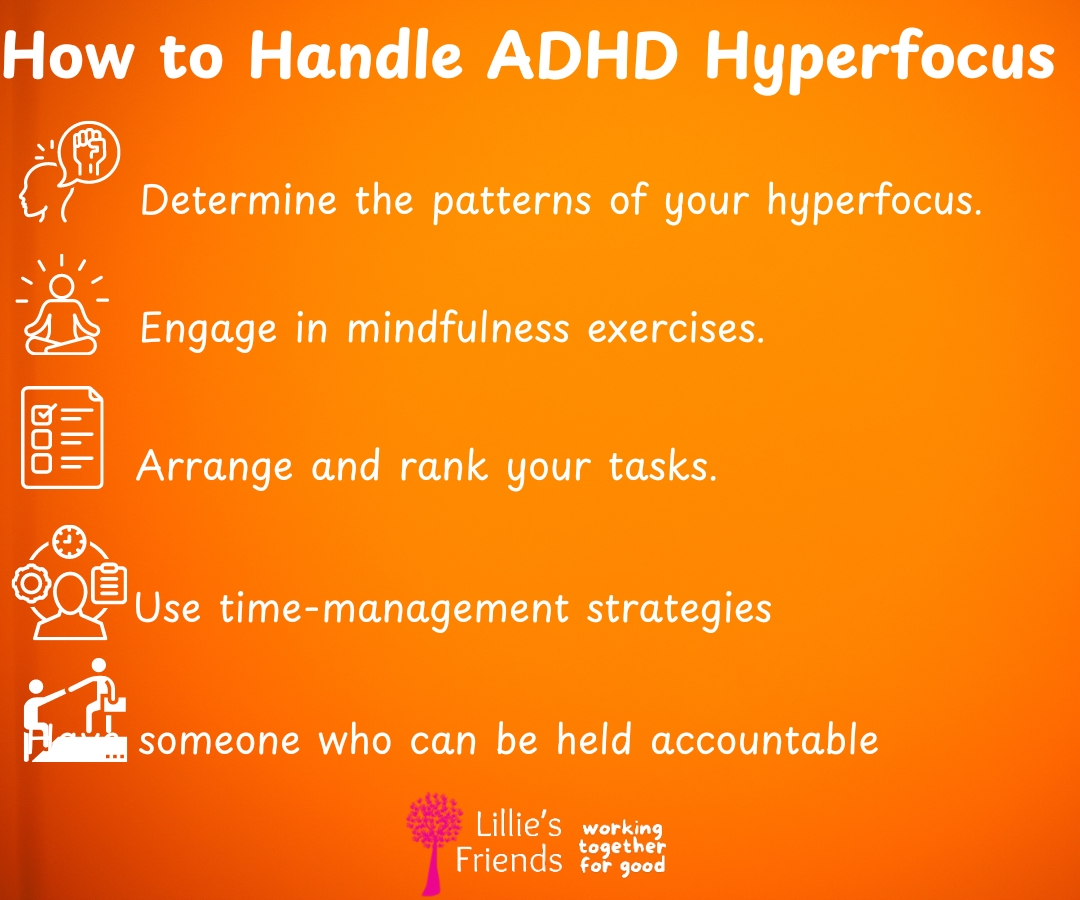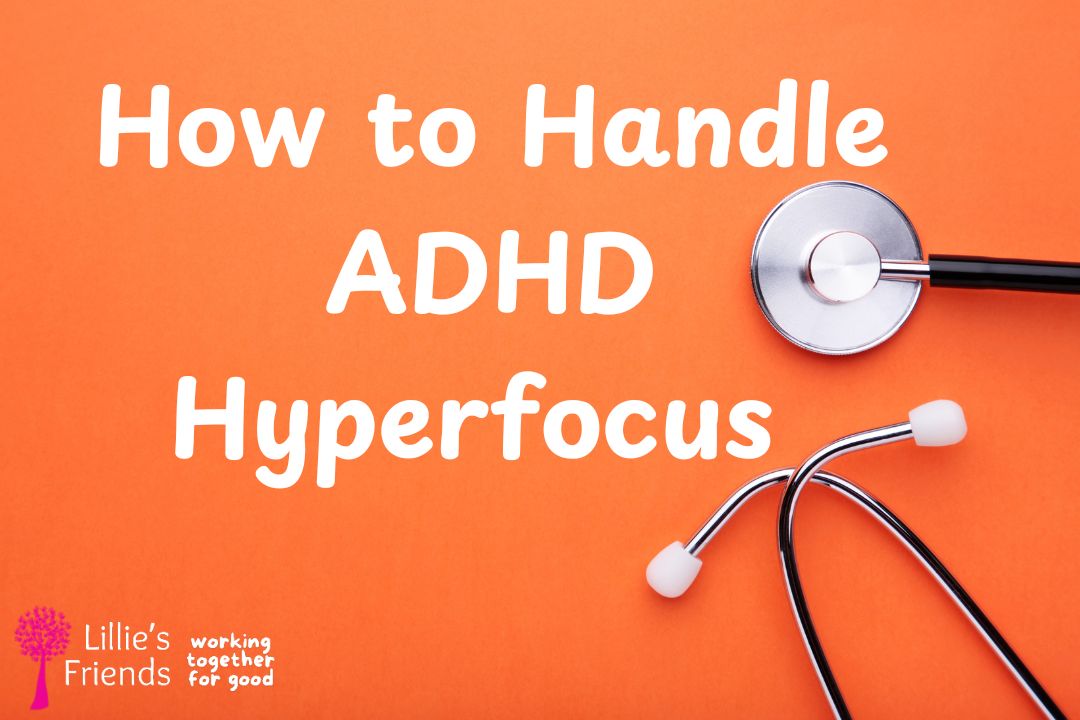Typically, impulsivity, restless behavior, and trouble sustaining focus are linked to ADHD. It may be difficult for some individuals to imagine ADHD patients experiencing hyperfocus for this reason.
Although hyperfocus is seen in both adults and children with this illness, it is not thought of as a subtype or diagnostic criterion for ADHD.
This article explores the definition of hyperfocus, the connection between hyperfocus and ADHD, the issues it may cause, and management options.
Hyperfocus: What Is It?
The term “ADHD hyperfocus ↗” describes a situation in which a person is so engrossed in a task or activity that they are unable to focus on anything else for an extended amount of time. It could be any activity, but ideally it’s something the person enjoys doing a lot. Examples of hyperfocus activities for kids could be watching TV shows or movies; for adults, it could be going shopping, engaging in a hobby, or even browsing social media.
Hours will pass without the individual realizing it or moving on to other things that need their attention in their lives, unless something or someone breaks this obsessive obsession.
How Can Hyperfocus Be Handled?
Hyperfocus is not a bad thing, and it can even be helpful in certain situations (particularly if the activity you are interested in is related to your studies or work), but it can also be detrimental. Hyperfocus in individuals with ADHD is a sign of a dysregulated attention system, much like a distraction. People find it difficult to switch their attention from one task to another. As a result, among other things, hyperfocus can have a negative impact on relationships, productivity at work, eating habits, and sleep patterns.
Some Advice on How to Put an End to Hyperfocus
1. Recognize and look at hyperfocus patterns
Finding the context, incentive, and setting in which the hyperfocus episode occurs is the first step. This step entails being aware of the appearance, length, potential effects on self-care, and reaction to disruptions of hyperfocus. This way, you’ll be able to recognize when hyperfocus is taking over and, consequently, have a strategy for effectively ending an episode.
2. Determine what is causing your excessive focus?
Sometimes a person will hyperfocus on something or an activity—not because they enjoy it, but rather because of other underlying problems. It might be a need for knowledge, worry over an impending occasion or deadline, or despair. Hyper-focusing can be resolved by addressing its underlying causes. It might also assist in realizing that the task is not all-encompassing and can be completed in smaller portions.
3. Arrange and rank your tasks.
Patients should make a plan for their days and week, putting chores in priority and urgency order before dividing them into manageable time slots. Less work should be assigned to each block so that students can complete it quickly, meet their objectives, and feel inspired by their success. Additionally, it will assist them in delaying going to bed or commencing activities that could cause hyperfocus at the expense of other people.
4. Practice time management (using alerts and alarms).
Hyperfocused individuals need to keep an eye on the passing of time. By putting up notifications at different times during the day, they may do this. They have access to a number of work management tools, such as notes and banners. There should be planned breaks in the work routine. These will all assist them in staying on course and preventing the detrimental impacts of hyperfocus.
5. Designate a person for accountability
It is nearly impossible to control hyperfocus on your own, especially in the beginning. Individuals who are afflicted with it ought to think about contacting friends, relatives, or coworkers for assistance by occasionally checking in on them. Additionally, the folks will hold the sufferers responsible for finishing crucial tasks first.
6. Employ mindfulness exercises
The goal of mindfulness is to help patients become aware of their thoughts and feelings while focusing on the here and now. Even when they are forced to perform tasks they dislike, it helps them become more focused and concentrated. It eases any underlying worry because it is soothing and relaxing.

When to Get Help
If hyperfocus becomes a problem in your life, it is best to consult a healthcare expert. It would be a great idea for people to consult a therapist when others close to them notice that they are concentrating on one aspect of their life at the detriment of other aspects of their lives.
Cognitive-behavioral therapy can be used to reduce this symptom. It will assist people in recognizing and altering their harmful thought and behavior patterns as well as creating new, productive ones. It also aids in strengthening organizational abilities and time management, among other things. As a result of the intensity of hyperfixation decreasing, everyday functioning improves.
In addition, it might be wise to get help if someone associates their hyperfocus with shortcomings in other areas of their lives. Lastly, if hyper-focusing coexists with other symptoms of ADHD, such as impulsivity, hyperactivity, and inattention to other tasks, therapy for ADHD should be sought. These could appear as:
- Acting or speaking without careful consideration
- Inability to concentrate
- Easily getting sidetracked
- Talking a lot and cutting others off when they’re speaking
- Excessive fidgeting and restlessness
- Ignoring or neglecting specifics
- Having trouble hearing someone during a conversation
- A lack of organizing abilities.
In summary
In clinical settings, hyperfocus is not taken into account when diagnosing ADHD and is frequently not given the same weight as other symptoms. It is easy for people to dismiss the existence of ADHD because it requires intense focus and can help people succeed. Patients with ADHD hyper-focusing, however, need to be aware of this behavior and understand how it occurs in their children. For online ADHD treatment from a mental health professional, get in touch with us right now.
Obtaining the advice of a medical specialist is also crucial. The doctors can assist the patient in determining the reason of their problem and teach them coping mechanisms, even in the event that they do not diagnose ADHD. The illness can be effectively managed with a combination of treatment, dietary and lifestyle modifications, and medication.











